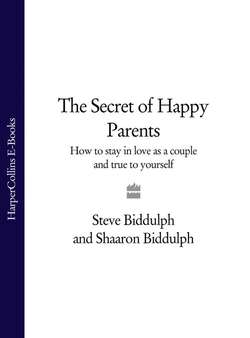Читать книгу The Secret of Happy Parents: How to Stay in Love as a Couple and True to Yourself - Steve Biddulph - Страница 9
Does normal mean ‘screwed up’?
ОглавлениеTo answer this question, for ourselves, as well as our clients, we read widely and also began travelling and talking to people in different countries. All through the 1970s and 1980s we travelled to observe childhood and family life, spending time in Calcutta in India, in remote villages in Papua New Guinea, and in modern cities like Singapore, San Francisco, Auckland and Beijing.
When we observed the lives of babies in the slums of Calcutta or in the bush of remote New Britain in the Pacific, we were struck by how contented and happy these babies and their parents often seemed. When we noted the lives of parents and children in childcare centres, schools, or suburban backyards in Australia and the US, we were equally struck by how unhappy they often were. The conclusion was alarming: as society got more materially privileged, childhood actually seemed to get worse, and the experience of parenthood somehow seemed harder.
In the West people had cars, health care, good housing and appliances. Our children did not die of preventable diseases and they got good educations. Yet we were time-poor, isolated, lonely and in competition instead of co-operation with those around us. We had traded our emotional wellbeing for material wellbeing and as a result the average Western family was in poor emotional health. In fact, it was dying of stress.
The question that arose was obvious: was it possible to have a materially good life AND live in the more joy-filled and connected way of people in more traditional societies?
In 1984 Steve wrote a book called The Secret of Happy Children, which espoused a more loving and positive style of parenting, at a time when books were more concerned with ‘taming’ children (or in other words, getting them to fit in with adults’ crazy lives). Quietly and without fanfare, Secret became popular all over the world.
The original edition of this book was our second one. Writing it together took many arguments and discussions, and so took a long time! By 1998 we had seven books, published in fifteen languages, in almost two million homes.
These days we are older and with our own children half-raised, we are starting to relax a little and not feel like we are solely responsible for saving the world. We feel ourselves to be a small part of a large social shift – parents gaining in their sense of worth, men reclaiming their place in the family, childhood becoming less oppressive and more secure.
We feel that the best results come not from frantic activism but from going calmly, thinking deeply and living your beliefs, as well as trying to pass them on. We have continued to work to train counsellors, especially in the healing of trauma and abuse, and to teach parenting skills, especially parenting without violence. We work in a circuit of about six countries where our books are popular and organizations exist which share our goals. We sometimes look at our lives in awe. We have been very lucky, yet we have also had enough hardship and disaster to give us a strong feeling for anyone who is doing it hard. We simply feel that it’s great to be alive, to have kids, wonderful friends and to see the sun come up another day.
